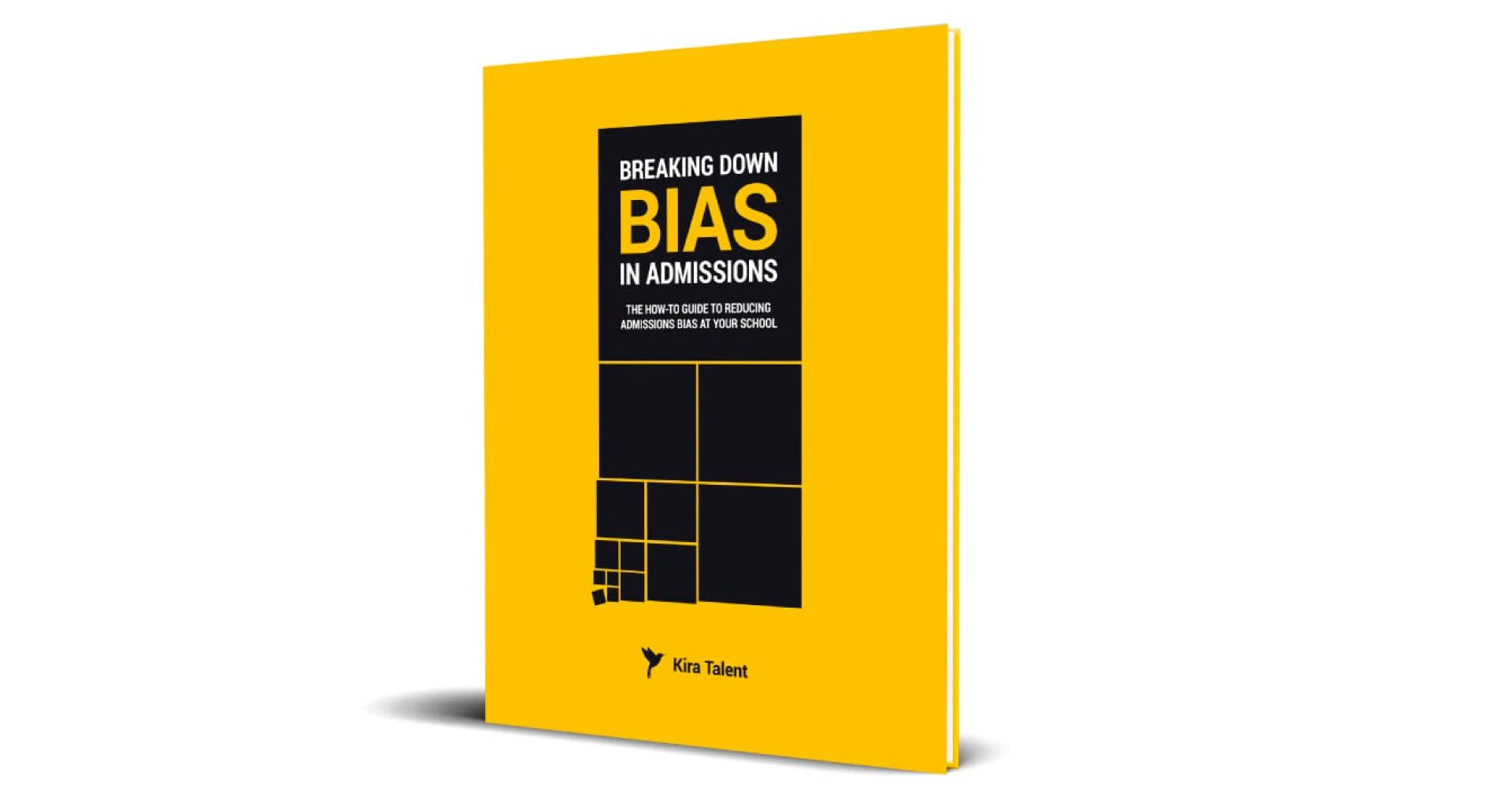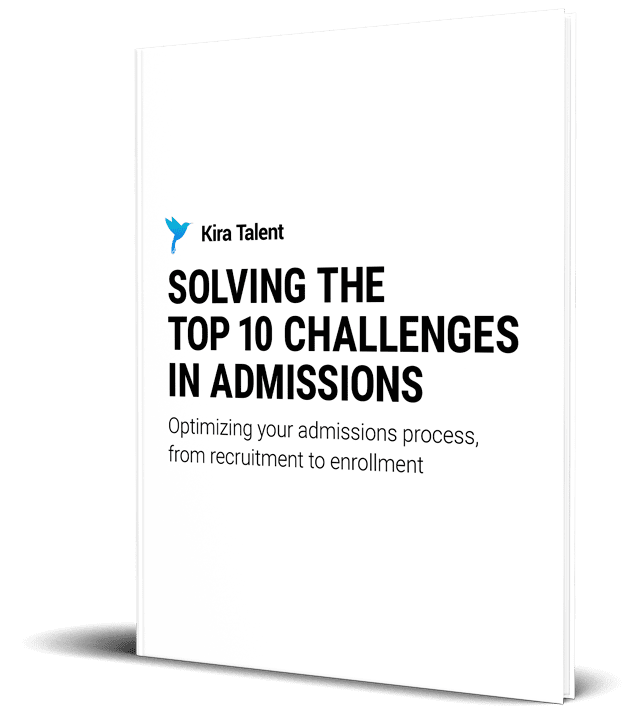We recently sat down with Charlie Wheelan to find out how he managed to make a remarkable pivot to online instruction by using Kira Talent in an unconventional and unexpectedly delightful way.
Wheelan is a Dartmouth College alum, senior lecturer, and policy fellow at The Nelson A. Rockefeller Center at the Ivy League school. The center provides an interdisciplinary perspective on policy-related topics and drives public policy research, teaching, deliberation, and informed public debate. Wheelan’s background and experience teaching across five different departments all connected to public policy made him a natural fit for the position.
When he isn’t teaching public policy and economics, he’s giving TED Talks, appearing as a guest on various podcasts, or writing columns and authoring best-selling books.
A creative way to quiz students
Kira Talent was built to help admissions teams go beyond the application by giving them a holistic view of every applicant through timed video and timed written assessments. When Wheelan discovered our software in 2016, he wondered if he could tweak it to suit his online instruction needs.
After working with our team to set up online video quizzes for his course, he quickly fell in love with the new format. Little did he know, in 2020, he'd be looking to re-introduce online assessments.
The arrival of spring and a global pandemic
“Empty out your office, do what you need to do, spring term is going online.” - Charlie Wheelan, Senior lecturer and policy fellow, Nelson A. Rockefeller Center at Tuck School of Business
We connected with Wheelan over Zoom, his surroundings a perfect picture of academia, with a bookshelf squeezing its contents from end to end and the overflow that refused to fit stacked on the table in front. He was calling from his office at the nearly deserted Dartmouth College, another campus cleared out by COVID-19.
The college operates on a quarter system, with its winter term wrapping up just as the coronavirus escalated from an outbreak overseas to a global pandemic. Wheelan’s last class was on March 6th and it was right around that time he was told, "Empty out your office, do what you need to do, spring term is going online.”
He was about to begin teaching a reading-intensive education policy class that examines how to design a public system that ensures the best teachers are in the classroom teaching what students ought to be learning.
The class was designed to be discussion-oriented, which he now had two weeks to retrofit for online instruction. Wheelan knew that discussions about policy would incite thoughtful dialogue with many different perspectives so he would need a format that would be both interesting and interactive for his students in order to facilitate these conversations.
He also needed a way to quiz students at the beginning of each class. To take part in the discussion, the students need to have completed the assigned reading in advance of the class. Ordinarily, when students were still on campus, Wheelan would have used a quick 5-minute pencil and paper quiz to separate those who had done the reading from those who hadn’t.
He was left without a tool that would meet both of these needs. “My first instinct was, it can’t be done,” Wheelan told us.
Just as he was wondering how in the world he was going to make the process feel more human, he remembered how much he liked the video quizzes in 2016. He realized short, timed videos would solve both problems at once; he’d be able to ask interesting questions and to capture answers from his students that are more engaging, more spontaneous, and more human than he could ever get from a paper and pencil exercise.
"It accomplishes everything I need in terms of making sure that they do the reading. But on top of that, instead of the one-sentence answer that I can just check off, I’m eliciting from each student a much more thoughtful reaction to the questions that I’m asking,” he said.
It became very clear that this was going to be a very powerful tool to facilitate a greater personal connection between him and his students.
Connection in a time of crisis
“Everybody is craving that personal connection and online has that tendency to be so impersonal and it totally transcends that.”
Wheelan didn’t just introduce a different format for quizzes, he took this new medium to another level with whimsical anecdotes and special guests to keep his students engaged.
The opportunity to connect with students remotely has also provided Wheelan with a unique window into their lives he wouldn’t otherwise be granted.
"They’re all at home and it’s kind of sweet because they’re all in their childhood bedrooms with trophies and ribbons, or they’re in the family room and someone’s making a sandwich. You just get a sense of where they are during this strange crisis,” he said.
Some students' family members even got involved. One eager-to-participate mom completed the reading and answered quiz questions, while another curious dad wandered into the frame, casually eating a sandwich, to watch his daughter complete her assessment.
What’s next for Wheelan and his students
“It’s helped connect me to the students, it’s created a sense of fun, and it’s taken us deeper in terms of how we’ve discussed the material than traditional tools I would have used.”
No one knows when things will return to some semblance of normal, but when they do, Wheelan assures us he has no doubt he’ll be keeping Kira Talent in his online instruction tool belt.



